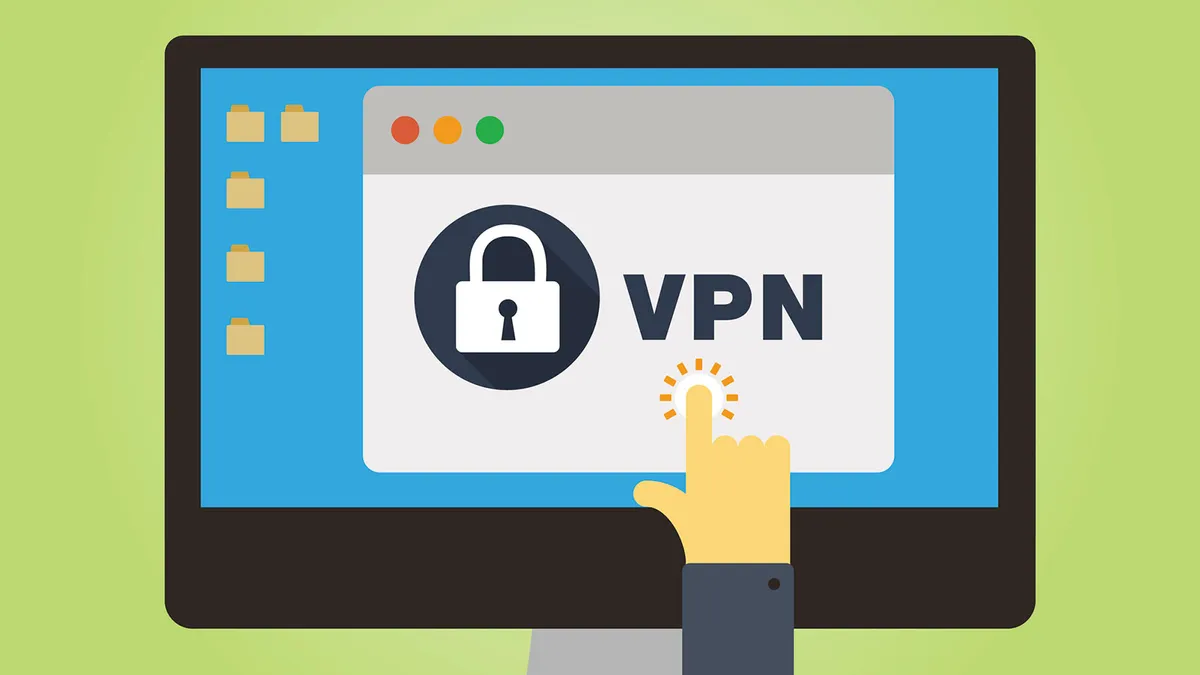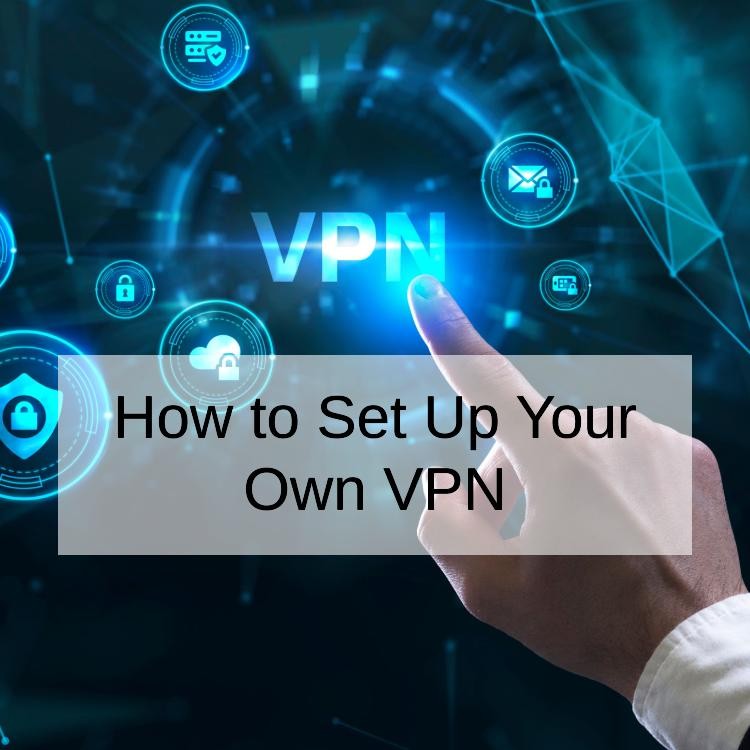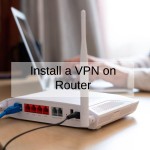In today's interconnected digital landscape, safeguarding sensitive information is paramount for businesses of all sizes. With cyber threats on the rise, it's crucial to establish a secure network infrastructure that protects data integrity and confidentiality. One effective solution that businesses can implement is setting up their own Virtual Private Network (VPN). This comprehensive guide will walk you through the process of creating your own VPN, ensuring enhanced security and privacy for your business operations.

Understanding the Basics of VPN
Before delving into the setup process, let's first grasp the fundamental concepts of a VPN. A Virtual Private Network free establishes a secure connection over the internet, allowing users to access resources and communicate privately. By encrypting data traffic between the user's device and the VPN server, VPNs ensure confidentiality and integrity, shielding sensitive information from prying eyes.
Discover Hot Deals on Shurfshark - Start Saving Now!
Benefits of Setting Up Your Own VPN
Enhanced Security and Privacy
By deploying an in-house VPN, businesses gain full control over their network infrastructure, reducing reliance on third-party service providers. This ensures heightened security and privacy, as sensitive data remains within the organization's secure environment.
Customizable Configuration
Setting up your own VPN enables businesses to tailor the configuration to their specific needs. From encryption protocols to access controls, administrators have the flexibility to customize settings based on security requirements and compliance standards.
Seamless Remote Access
In an era where remote work is prevalent, a self-hosted VPN facilitates secure remote access to internal resources. Employees can connect to the corporate network from any location, ensuring productivity without compromising security.
Steps to Set Up Your Own VPN
Now that we've outlined the advantages, let's proceed with the step-by-step process of setting up your own VPN.
Choose Your VPN Server
The first step is selecting a suitable server to host your VPN. You can opt for a dedicated physical server within your premises or utilize a cloud-based solution for scalability and flexibility. Popular choices include VPN gatewayappliances or virtual instances offered by cloud providers.
Install VPN Software
Once you've chosen your server, proceed to install the necessary VPN software. There are various options available, ranging from open-source solutions like OpenVPN to commercial offerings such as Cisco AnyConnect. Evaluate your requirements and select the VPN applicationthat best fits your needs.
Configure Network Settings
Next, configure the network settings on your VPN server. This involves assigning IP addresses, defining subnet masks, and configuring routing tables to facilitate communication between the VPN clients and the internal network. Ensure that firewall rules are configured to restrict unauthorized access.
Set Up User Authentication
To ensure secure access to the VPN, implement robust user authentication mechanisms. This may involve setting up user accounts with unique credentials or integrating with existing authentication systems such as Active Directory or LDAP. Utilize strong encryption algorithms to protect user credentials from potential attacks.
Establish Encryption Protocols
Encryption is a cornerstone of VPN security, safeguarding data as it traverses the internet. Configure encryption protocols such as VPN free downloadAES (Advanced Encryption Standard) to encrypt data traffic between clients and the VPN server. Additionally, enable Perfect Forward Secrecy (PFS) to enhance security by generating unique encryption keys for each session.
Get More, Spend Less at Nord VPN Today!
Test and Validate Configuration
Before deploying your VPN into production, conduct thorough testing to validate the configuration. Verify connectivity from various client devices, test data transfer speeds, and ensure that security measures such as encryption and authentication are functioning correctly. Address any issues or misconfigurations identified during testing to ensure a smooth deployment.
Implement Monitoring and Maintenance
Once your VPN is up and running, establish VPN onlinemonitoring and maintenance procedures to ensure optimal performance and security. Monitor network traffic, VPN server health, and security logs regularly to detect and mitigate any potential threats or anomalies. Perform regular software updates and security patches to address vulnerabilities and enhance resilience against emerging threats.
Setting up your own VPN offers businesses a secure and reliable solution for protecting sensitive data and ensuring privacy in an interconnected world. By following the steps outlined in this guide and leveraging the right VPN app and VPN freesolutions, businesses can establish a robust network infrastructure that meets their security requirements and empowers remote workforce productivity. Embrace the power of self-hosted VPNs to safeguard your business's digital assets and maintain a competitive edge in today's dynamic business landscape.
Why Should You Use Your Own VPN?
Enhanced Privacy and Security
One of the primary reasons to set up your own VPN is to ensure enhanced privacy and security for your online activities. By routing your internet traffic through a VPN server, you can encrypt your data and mask your IP address, making it much harder for third parties to track your online behavior and intercept sensitive information.
Control Over Server Infrastructure
When you use a third-party vpn appservice, you're essentially entrusting your data to their servers. By setting up your own VPN, you have full control over the server infrastructure, which means you can implement robust security measures and ensure that your data remains within your own trusted network.
Customization Options
Another advantage of setting up your own VPN is the ability to customize it according to your specific requirements. You can choose encryption protocols, set access controls, and configure logging and monitoring mechanisms to suit your needs. This level of customization is often not available with off-the-shelf VPN services.
Cost Savings
While many VPN services require a subscription fee, setting up your own VPN can be a cost-effective solution in the long run. Once you have the necessary hardware and software in place, the ongoing maintenance costs are typically minimal, especially compared to monthly subscription fees.
How to Set Up Your Own VPN
Choosing the Right VPN Software
The first step in setting up your own VPN is selecting the right VPN downloadsoftware. There are several options available, ranging from open-source solutions like OpenVPN to commercial offerings like WireGuard. Consider factors such as ease of use, security features, and compatibility with your existing infrastructure when making your selection.
Installing the VPN Software
Once you've chosen your VPN software, the next step is to install it on your chosen server or device. Most VPN software comes with detailed installation instructions, making the process relatively straightforward. Follow the prompts to install the software and configure basic settings such as server location and encryption protocols.
Configuring Your VPN
After the installation is complete, you'll need to configure your VPN to meet your specific requirements. This may include setting up user accounts, defining access controls, and configuring encryption settings. Many VPN software packages come with graphical user interfaces that make it easy to configure these settings, even for users with limited technical expertise.
Automatic Configuration vs. Manual Configuration
When setting up your VPN, you have the option of using automatic configuration tools provided by the VPN software or manually configuring each setting yourself. Automatic configuration tools can simplify the process and ensure that all settings are optimized for security and performance. However, if you require specific customization or have unique requirements, manual configuration may be necessary.
Testing Your VPN
Once your VPN is configured, it's essential to test it thoroughly to ensure that it's functioning correctly. Test the connection from various devices and locations to ensure that you can connect to the VPN server reliably. Additionally, test the performance of your VPN by measuring data transfer speeds and latency.
Here's a detailed comparison of how to set up your own VPN across various aspects, along with five commonly asked questions and their answers:
Setting Up Your Own VPN
Using VPN Software:
- Many VPN providers offer software or applications that allow you to set up your own VPN server on a virtual private server (VPS) or a dedicated server. This software typically includes step-by-step guides and automated setup processes to simplify the installation.
Manual Configuration:
- Alternatively, you can manually set up a VPN server using open-source software like OpenVPN or WireGuard. This method requires more technical expertise but offers greater customization and control over your VPN server configuration.
Choosing a Server Location:
- When setting up your own VPN, you'll need to choose a server location where your VPN server will be hosted. Consider factors like proximity to your location, server performance, and legal jurisdiction when selecting a server location.
Securing the VPN Server:
- It's essential to secure your VPN server to prevent unauthorized access and protect your data. This includes configuring firewall rules, implementing encryption protocols, and regularly updating software to patch vulnerabilities.
Client Configuration:
- After setting up your VPN server, you'll need to configure VPN client software on your devices to connect to the server. This involves entering the server's IP address or domain name, along with authentication credentials, into the VPN client settings.
Best Free VPN Options Right Now
While setting up your own VPN offers many advantages, it may not be the right solution for everyone. If you're looking for a reliable best free vpnservice that offers ease of use and a wide range of features, consider the following options:
ExpressVPN
ExpressVPN is a popular VPN service known for its fast connection speeds, strong encryption, and user-friendly interface. With servers located in over 90 countries, ExpressVPN offers excellent global coverage and reliable performance for streaming, gaming, and other online activities.
NordVPN
NordVPN is another top-rated VPN service that offers a combination of speed, security, and affordability. With features like double encryption, dedicated IP addresses, and a built-in ad blocker, NordVPN is an excellent choice for users looking for comprehensive online protection.
CyberGhost VPN
CyberGhost VPN is a budget-friendly option that doesn't compromise on features or performance. With servers optimized for streaming and torrenting, as well as advanced security features like malware blocking and automatic kill switches, CyberGhost VPN is an excellent choice for users on a budget.
Setting up your own VPN offers numerous benefits, including enhanced privacy and security, control over server infrastructure, customization options, and cost savings. By following the steps outlined in this guide and considering the best VPN options available, you can create a secure and reliable VPN solution that meets your specific needs. Whether you're an individual looking to protect your online privacy or a business seeking to safeguard sensitive data, setting up your own VPN is a powerful solution worth considering.
Commonly Asked Questions and Answers
Do I need a dedicated server to set up my own VPN?
- While having a dedicated server offers the best performance and control, you can also set up a VPN server on a virtual private server (VPS) provided by a hosting provider. VPS hosting is more affordable and suitable for smaller-scale VPN deployments.
Which VPN protocol should I use for my VPN server?
- The choice of VPN protocol depends on factors like security, speed, and compatibility with your devices. OpenVPN is a popular choice for its robust security features, while WireGuard is known for its high performance and simplicity.
Can I use my own VPN to bypass geo-restrictions and access region-locked content?
- Yes, you can use your own VPN server to bypass geo-restrictions and access region-locked content by connecting to a server located in the desired region. However, ensure compliance with the terms of service of the content providers you're accessing.
Do I need a static IP address for my VPN server?
- While a static IP address is not strictly necessary, it can simplify the configuration and management of your VPN server, especially if you plan to use domain names for connecting to the server. Some hosting providers offer static IP addresses as an option for VPS hosting.
How do I ensure the security of my self-hosted VPN server?
- To ensure the security of your self-hosted VPN server, follow best practices such as regularly updating software, configuring strong encryption, implementing firewall rules, and monitoring for any unauthorized access or unusual activity.
Setting up your own VPN involves choosing between using VPN software provided by a VPN provider or manually configuring a VPN server using open-source software. Consider factors like server location, security measures, and client configuration when setting up your VPN, and ensure you follow best practices to maintain the security and performance of your VPN server.













